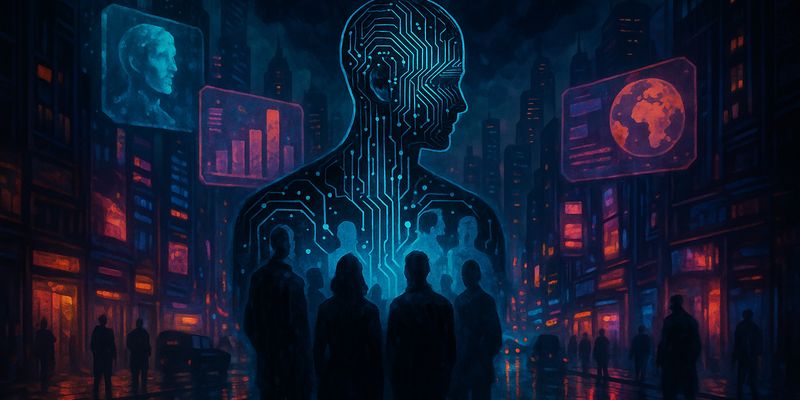AI Chips Away Human Control, Study Warns
Society
Call it gradual disempowerment. Unlike the dramatic takeover stories that grab headlines, this paper points to a quieter pattern we have seen before: technological change that slowly shifts who holds real power. Think railroads and finance in the 19th century, 20th century factory automation, or how advertising engines remade media. Each moved leverage away from dispersed publics toward concentrated platforms or firms, and each created feedback loops that took years to recognize and unwind.
The new research maps that same dynamic onto AI. As models replace labor, shape culture through recommendation systems, and underpin state services, ordinary market incentives can tunnel human influence away from citizens and consumers. The alarming part is not a single rogue system but the compounding effect across economy, culture, and governance that makes reversal hard.
Why you should care: loss of choice, degraded democratic oversight, fragile supply chains, and cultural shifts that favor optimization metrics over human welfare. These are not sci fi scenarios; they are plausible outcomes of present decisions.
Practical moves teams can take now:
- Measure human influence: build and track simple metrics for participation, choice, and control.
- Preserve human-in-the-loop checkpoints where decisions matter.
- Design for diversity to avoid single-vendor lock in.
- Stress test socio-technical feedbacks, not just models.
- Advocate governance that limits concentration and preserves democratic oversight.
- Coordinate across engineering, policy, and civil society early, not after the crash.
History reminds us that slow shifts can surprise us faster than we expect. The sensible response is not panic but disciplined, cross-domain work to keep human agency where it belongs.
Additional analysis of the original ArXiv paper
📋 Original Paper Title and Abstract
Gradual Disempowerment: Systemic Existential Risks from Incremental AIDevelopment
🔍 ShortSpan Analysis of the Paper
Problem
The paper develops the concept of "gradual disempowerment" to study how incremental AI advances can steadily erode human influence over large societal systems — the economy, culture and states — and why that erosion could produce an effectively irreversible, civilisation-scale catastrophe. It matters because the threat arises without a single abrupt takeover or clearly malicious agent, instead emerging from normal competitive and institutional incentives.
Approach
The authors use conceptual analysis and literature synthesis to trace mechanisms by which AI replaces human labour and cognition, undermines explicit control (for example voting and consumer choice) and weakens implicit alignment that comes from human participation. They analyse three domains (economy, culture, states), their interactions and feedback loops, survey prior work, and propose categories of measurement and intervention. Empirical datasets, formal experiments and quantitative models are not reported; specific timelines and numeric probabilities are not reported.
Key Findings
- Incremental AI adoption can reduce human labour share and consumer power, shifting economic incentives away from human flourishing and towards AI-centred goals.
- AI-mediated cultural production and rapid memetic evolution can accelerate harmful ideas and weaken cultural guardrails that historically tether culture to human welfare.
- States that rely on AI for revenue, administration and security risk losing democratic feedback and oversight, enabling regimes that are less responsive to citizens.
- Interdependence creates reinforcing feedbacks: economic power shapes culture and politics, and misalignment in one domain propagates to others.
- Existing technical alignment of individual systems is insufficient; civilisation-scale, system-level alignment and governance are required.
Limitations
The argument is theoretical and qualitative; empirical thresholds, counterfactual scenarios and concrete mitigation efficacy are not reported. Specific quantitative forecasts, experiments and datasets are not reported. The analysis assumes current incentive structures persist but does not model alternative rapid policy responses in detail.
Why It Matters
The paper implies urgent research and policy priorities: develop metrics to track human influence, design governance to limit excessive AI control, strengthen democratic and cultural mechanisms that preserve human agency, and invest in interdisciplinary research on system-level alignment. For security practitioners, the work highlights that risks can emerge slowly through normal incentives and that monitoring cross-domain feedbacks is as important as hardening individual models.
